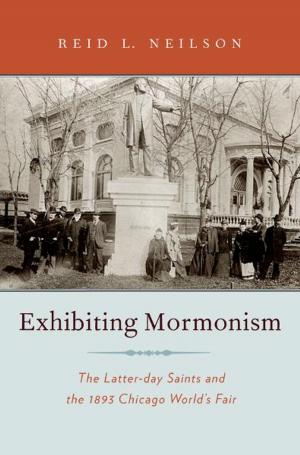The Liberty of Strangers
Making the American Nation
Nonfiction, Social & Cultural Studies, Political Science, Politics, History & Theory, History, Americas, United States, 20th Century| Author: | Desmond King | ISBN: | 9780190287146 |
| Publisher: | Oxford University Press | Publication: | December 9, 2004 |
| Imprint: | Oxford University Press | Language: | English |
| Author: | Desmond King |
| ISBN: | 9780190287146 |
| Publisher: | Oxford University Press |
| Publication: | December 9, 2004 |
| Imprint: | Oxford University Press |
| Language: | English |
Harry S. Truman once said, "Ours is a nation of many different groups, of different races, of different national origins." And yet, the debate over what it means--and what it takes--to be an American remains contentious. Nationalist solidarity, many claim, requires a willful blending into the assimilationist alloy of these United States. Others argue that the interests of both nation and individual are best served by allowing multiple traditions to flourish--a salad bowl of identities and allegiances, rather than a melting pot. Tracing how Americans have confronted and relinquished, but mostly clung to group identities over the past century, Desmond King here debunks one of the guiding assumptions of American nationhood, namely that group distinction and identification would gradually dissolve over time, creating a "postethnic" nation. Over the course of the twentieth century, King shows, the divisions in American society arising from group loyalties have consistently proven themselves too strong to dissolve. For better or for worse, the often-disparaged politics of multiculturalism are here to stay, with profound implications for America's democracy. Americans have now entered a post-multiculturalist settlement in which the renewal of democracy continues to depend on groups battling it out in political trenches, yet the process is ruled by a newly invigorated and strengthened state. But Americans' resolute embrace of their distinctive identities has ramifications not just internally and domestically but on the world stage as well. The image of one-people American nationhood so commonly projected abroad camouflages the country's sprawling, often messy diversity: a lesson that nation-builders worldwide cannot afford to ignore as they attempt to accommodate ever-evolving group needs and the demands of individuals to be treated equally. Spanning the entire twentieth century and encompassing immigration policies, the nationalistic fallout from both world wars, the civil rights movement, and nation-building efforts in the postcolonial era, The Liberty of Strangers advances a major new interpretation of American nationalism and the future prospects for diverse democracies.
Harry S. Truman once said, "Ours is a nation of many different groups, of different races, of different national origins." And yet, the debate over what it means--and what it takes--to be an American remains contentious. Nationalist solidarity, many claim, requires a willful blending into the assimilationist alloy of these United States. Others argue that the interests of both nation and individual are best served by allowing multiple traditions to flourish--a salad bowl of identities and allegiances, rather than a melting pot. Tracing how Americans have confronted and relinquished, but mostly clung to group identities over the past century, Desmond King here debunks one of the guiding assumptions of American nationhood, namely that group distinction and identification would gradually dissolve over time, creating a "postethnic" nation. Over the course of the twentieth century, King shows, the divisions in American society arising from group loyalties have consistently proven themselves too strong to dissolve. For better or for worse, the often-disparaged politics of multiculturalism are here to stay, with profound implications for America's democracy. Americans have now entered a post-multiculturalist settlement in which the renewal of democracy continues to depend on groups battling it out in political trenches, yet the process is ruled by a newly invigorated and strengthened state. But Americans' resolute embrace of their distinctive identities has ramifications not just internally and domestically but on the world stage as well. The image of one-people American nationhood so commonly projected abroad camouflages the country's sprawling, often messy diversity: a lesson that nation-builders worldwide cannot afford to ignore as they attempt to accommodate ever-evolving group needs and the demands of individuals to be treated equally. Spanning the entire twentieth century and encompassing immigration policies, the nationalistic fallout from both world wars, the civil rights movement, and nation-building efforts in the postcolonial era, The Liberty of Strangers advances a major new interpretation of American nationalism and the future prospects for diverse democracies.















